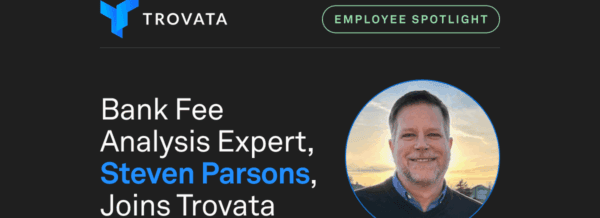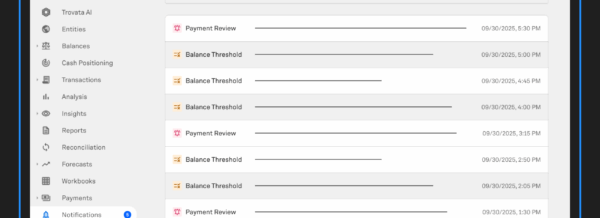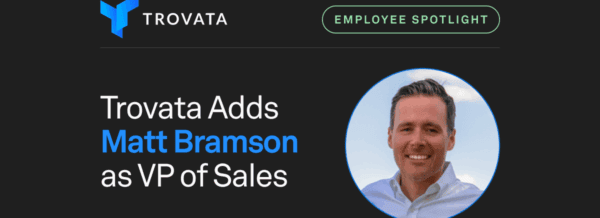For corporate treasury professionals who experienced the 2008 financial crisis, the current economic climate likely feels like deja vu. And now, on the heels of the 2023 banking failures, executives are choosing to diversify their cash storage and short-term investments strategy to mitigate risk.
As AFP gets underway next week, these topics are once again at the forefront of finance functions. In this guest-post blog series, we are teaming up with cash-optimization platform Jiko. In this blog article, learn how optimizing liquidity with US treasury bills relates to cash safety, yield, and accessibility in a modern corporate treasury environment. See our post on Jiko’s blog {here}, where we outline why complete cash visibility is the foundational step to optimizing your cash storage and investment strategy.
Limits of Traditional Banks
This year’s series of bank failures tested trust in banks and fractured the illusion that customers’ deposits are sitting there waiting for them. For even the savviest of bank customers, it is easy to make a deposit and forget it. Startups, VCs, and even individuals kept millions of dollars in their Silicon Valley Bank accounts, not thinking twice about the risks being taken with that money on their behalf.
1. Your operating cash is not sitting in the bank
As soon as a paycheck or a business deposit reaches a bank, it’s put to work. Most people think they are safely parking money in a vault, but in reality, they are investing in a bank’s portfolio of investments (mostly loans).
There’s a good reason for this. The more than 9,000 banks in the U.S. provide a critical service of lending to consumers and businesses; community banks and local bankers help their local businesses and customers. But the situation gets more complicated when deposits are used for bigger and riskier leverage.
2. Big banks make the biggest bets
Essentially all banks make bets. They bet on a homeowner to pay back a mortgage. They bet on new businesses with credit lines. They bet on what they know about the economy to buy Treasury bonds. The bigger the banks, the bigger the bets as they seek larger returns from complicated, riskier financial instruments. During the 2008 financial collapse, the repo markets (which represent lending between banks) collapsed overnight as nearly worthless mortgage-backed securities destroyed Lehman Brothers. The bets were massive—and built on a hollow foundation of bad loans.
3. Banks cannot take unlimited deposits
Finally, the more money banks take in, the more places they need to find to lend, invest, and make money. That looks good on the surface, until one digs into a bank’s balance sheet: As they lend and invest more, they need more capital to meet regulatory requirements.
Put another way, a bank cannot go viral. Banks typically are required to hold capital representing nearly 10% of their assets (though the exact ratios vary). That means for every $10 million of new deposits, they would need to find $1 million of new capital. If the numbers rise too quickly, they simply cannot keep up.
What does this mean for deposits? Just as a bank run can lead to insolvency as withdrawals exceed reserves, a deposit rush hurts business as cash exceeds a bank’s ability to lend and raise capital. Following the pandemic, banks awash in deposits were even asking businesses to deposit less and redirecting them to money-market accounts with different requirements.
Can US Treasury Bills Play a Role?
This latest test is again sparking a much-needed conversation on how to protect depositors and avoid the potential for a wider contagion. Regulators and bankers are examining a range of possible solutions, such as the need for higher or unlimited FDIC insurance, the launch of a digital dollar, and more.
As we search for solutions at our corporate treasury fingertips, let’s not forget what really matters: disentangling everyday paychecks and payrolls from the risk on any given bank’s balance sheet, without compromising on optimization vectors such as yield, safety, or liquid access.
That’s where the power of US Treasury bills comes in.
Optimize Your Treasury with Jiko Corporate
US Treasury bills are a key component of the global economy — the most liquid and trustworthy financial instrument in the world — and yet they have never been easily accessible to businesses or individuals. Jiko Corporate finally solves this issue for the corporate treasury profession and makes short-term US Treasury bills an easy part of your corporate treasury strategy.

For corporate treasury professionals and businesses, Jiko Corporate is an effective, automated, diversification platform for optimizing operational and excess cash, offering seamless access to the US Treasury bill market and its various tax benefits, plus on-demand liquidity – all with the assurance of knowing assets are securely held in custody at BNY Mellon.
Unlike corporate banking deposits, which as outlined above are fraught with counterparty and related bank-failure risk, Jiko deposits are invested in real time in the US Treasury (and the associated risks are those of such Treasury investments).
Ultimately, Jiko Corporate empowers your treasury ops to work with speed and efficiency – and, as this year put into stark relief – reassurance of knowing that the money we rely on to pay bills and run our businesses is there when we need it.
—–
Investments in T-bills: Not FDIC Insured – No Bank Guarantee – May Lose Value
All US Treasury investments and investment advisory services provided by Jiko Securities, Inc., a registered broker-dealer, member FINRA and SIPC. Securities in your account are protected up to $500,000. For details, please see www.sipc.org.
Banking services provided by Jiko Bank, a division of Mid-Central National Bank.
Jiko Group, Inc. and its affiliates do not provide legal, tax, or accounting advice. You should consult your legal and/or tax advisors before making any financial decisions. This material is not intended as a recommendation, offer or solicitation for the purchase or sale of any security or investment strategy. See FINRA BrokerCheck, Jiko US Treasuries Risk Disclosures and Jiko Securities Inc. Form CRS.



